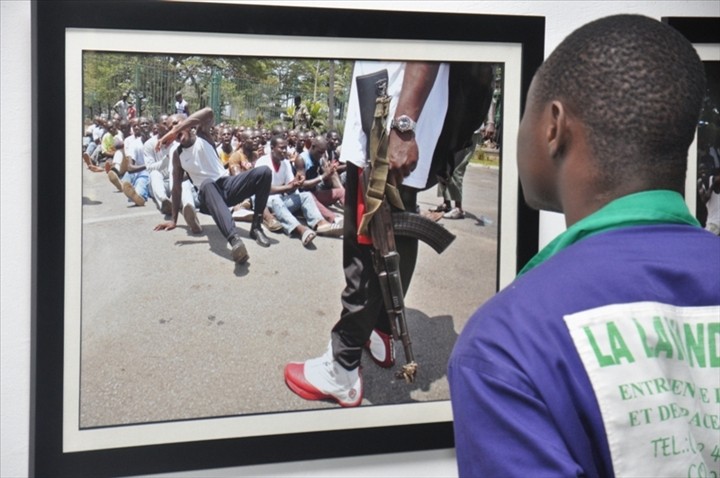- What We Do
- Agriculture and Food Security
- Democracy, Human Rights and Governance
- Economic Growth and Trade
- Education
- Environment and Global Climate Change
- Gender Equality and Women's Empowerment
- Global Health
- Humanitarian Assistance
- Transformation at USAID
- Water and Sanitation
- Working in Crises and Conflict
- Disaster Assistance
- Stabilization and Transitions
- Where We Work
- Afghanistan
- Armenia
- Bosnia and Herzegovina
- Burkina Faso
- Colombia
- Ethiopia
- Iraq
- Libya
- Malaysia
- Mozambique
- Niger
- Nigeria
- Sudan
- Ukraine
- Closed Programs
- Afghanistan
- Albania
- Angola
- Bolivia
- Bosnia & Herzegovina
- Burma
- Burundi
- Chad
- Colombia
- Croatia
- Cuba
- Côte d'Ivoire
- Democratic Republic of Congo
- East Timor
- Guatemala
- Haiti
- Honduras
- Indonesia
- Iraq
- Kenya
- Kosovo
- Kyrgyz Republic
- Lebanon
- Liberia
- Mali
- Nepal
- Nicaragua
- Nigeria
- North Macedonia
- Northern Cameroon
- Pakistan
- Peru
- Philippines
- Rwanda
- Serbia and Montenegro
- Sierra Leone
- Somalia
- South Sudan
- Sri Lanka
- Sudan
- Syria
- Tunisia
- Uganda
- Venezuela
- West Bank/Gaza
- Yemen
- Zimbabwe
- Background
- Criteria for Engagement
- Multi-Media
- Opportunities
- Our Stories
- Where We Work
- Conflict Mitigation and Prevention
- Countering Violent Extremism
- Disaster Risk Reduction
- Peacebuilding and Reconciliation
- Recovering From Crisis
- Resilience
- Tech Challenge for Atrocity Prevention
- Women, Peace, and Security
- World Humanitarian Day
- U.S. Global Development Lab
Speeches Shim

2011 - 2016
WHY USAID/OTI WAS IN CÔTE D'IVOIRE
USAID/OTI launched the Côte d’Ivoire Transition Initiative (CITI) program in September 2011 after post-election violence claimed 3,000 lives and displaced hundreds of thousands. The country had made enormous progress in its transition to peace and stability after over 10 years of civil conflict, but it faced a critical test during the October 2015 presidential elections. The elections — the first since the 2010 violence — were peaceful but had the potential to exacerbate enduring tensions around nationality and identity.
USAID/OTI'S ROLE IN CÔTE D'IVOIRE
USAID/OTI’s work in Côte d’Ivoire consisted of two phases. Phase I (September 2011 – August 2014) supported confidence in the post-conflict recovery process through assistance to the re-establishment of the state and its connection with the communities it served. Phase II (June 2014 - March 2016) placed particular emphasis on supporting a peaceful, inclusive and credible electoral process through strengthening electoral institutions, improving access to credible information and increasing intercommunity dialogue. Through addressing community grievances and equipping communities with the tools to access, analyze and share accurate information, USAID/OTI worked to make communities more cohesive and resilient to political manipulation.
PROGRAM HIGHLIGHTS
CITI worked at the local level in the most volatile areas of the country to address issues that destabilize communities. CITI helped communities and state actors find mutually beneficial solutions to create more resilient communities by:
- Partnering with university students to design and paint murals in two of Abidjan's marginalized neighborhoods to raise awareness of the electoral process and promote peaceful elections. With visually striking images, the murals targeted not fully literate residents at high visibility and high traffic sites.
- Producing a TV series to promote women's participation in the elections.
- Sponsoring a concert to promote a peaceful climate in the highly volatile transport sector ahead of the elections. The popular singer's new single targeted youth and young urban transporters, who were seen as some of the main perpetrators of the 2010-2011 post-electoral violence.
The video provides an overview of USAID's Côte d'Ivoire Transition Initiative program known as CITI. USAID's Office of Transition Initiatives (OTI) launched CITI in September 2011, four months after the end of post-election violence. OTI activities aim to boost government capacity and stimulate community engagement by working with the Ivoirian government and local groups to identify and respond to community-prioritized needs and encourage a peaceful transition. Dao Dauda who is a monitoring and evaluation specialist for OTI's implementing partner, AECOM, narrates the video.
To learn more about the work of OTI visit:
http://www.usaid.gov/cote-divoire/pol...

Comment
Make a general inquiry or suggest an improvement.